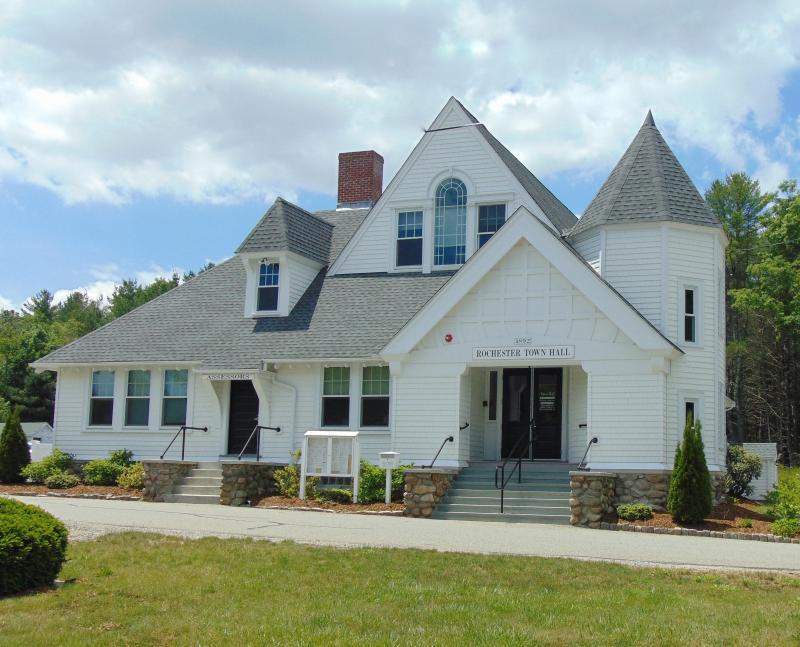Town Meeting vote could mean tighter restrictions on solar projects
Rochester residents will consider tightening up the town's regulations on solar projects when Town Meeting convenes on October 23.
Also on the agenda is a $10,000 request to supplement the police department's staffing budget, and other money transfers from the police.
Town Meeting serves as Rochester's legislative branch. All registered voters in Rochester are eligible to attend and vote. Town Meeting begins at 7 p.m. in the cafeteria of Rochester Memorial School, 16 Pine Street.
A proposed solar bylaw amendment would impose a ban on ground-mounted solar panels in any lot that fronts a scenic highway in Rochester. It was added to the Town Meeting agenda after a citizen petition with well over 100 signatures was submitted to Rochester’s Board of Selectmen.
Currently, the only scenic highway in Rochester is Route 105, which runs from Cushman Road in Rochester, through the center of town and into Marion. The road is dotted with farms, agricultural land, and forests, which the petitioners hope to keep.
As originally drafted, the amendment would not allow ground-mounted solar installations within 1,000 feet of a scenic highway, unless the area’s natural topography obscured view of the site to begin with. However, Town Counsel Blair Bailey indicated that he was uncomfortable with the 1,000 foot barrier, noting that it was an arbitrary number which could not be defended to the Massachusetts Attorney General. Bailey felt that, even if the article were to pass at Town Meeting, the Attorney General (who gives ultimate approvals to all articles passed at Town Meeting) would refuse to approve the amendment. “The state is very pro-solar,” explained Planning Board Chair Arnie Johnson at a recent meeting. “One-thousand feet of protected space is too much for them.”
Instead, Johnson suggested that the citizens who submitted the petition— Sara Johnston, Ginette Castro and Michael Olesak—revise the wording to ban ground-mounted solar installations altogether from any lots that front a scenic highway in Rochester. Johnson and Bailey are still working out the exact wording that they will feel is most likely to be approved by the Attorney General, Johnston explained, but should be returning with their wording shortly.
“We’re not against solar at all,” Johnston said. “What we’re hoping to do is preserve the rural character of Rochester in at least this one area.”
“We know there are realities to living in Rochester— the town must be developed and businesses brought in,” Castro added. “But there’s a lot of open space here that’s attractive to solar developers. We need to find a win-win that can bring business into the town while preserving its character.”
“Anytime I see a solar farm, I’m happy because that means less pollution," Johnston added. "What I’m hoping to do is try to protect Route 105 and hopefully move solar developers to parts of town that are less visible.”
Olesak agreed. “A message should be sent to solar developers that they should focus on developing areas where the town’s rural character won’t be so affected,” he said.
“I think that getting solar developers to move somewhere less visible will help ease conflicts between residents and solar farms as well,” Johnston added. “That way we can still have solar, and residents don’t need to worry about Rochester’s rural character being stripped away either.”
Elsewhere on the agenda, the Rochester Police Department is requesting $10,000 to supplement previous money requested at the town’s spring Town Meeting. “The police department has been down a person who is on extended injury leave,” Rochester Town Clerk Naida Parker explained. “His shifts have been covered by other officers, who need to be paid overtime to accommodate his absence.”
She explained that paying so much overtime was far more expensive than hiring a full-time police officer. Plus, Parker added, as Police Chief Paul Magee is set to retire in the next year, he’d like to have everything set and the police department fully staffed and in order before he leaves.
Voters will also decide whether to approve an extra $30,000 for the Police Department. The funds will be used to retroactively pay police officers from July 1, 2017 (the start of fiscal year 2018) through the end of the year, for adjustments in their pay made at the spring Town Meeting, Parker explained. The overall salary of all full-time policemen in Rochester was raised from $420,944 to $435,876 at Rochester's regular town meeting.
A similar request on the agenda asks for an additional $60,000 to pay the police officers retroactively from the first of the year through June 30, which marks the last day of fiscal year 2018.
















